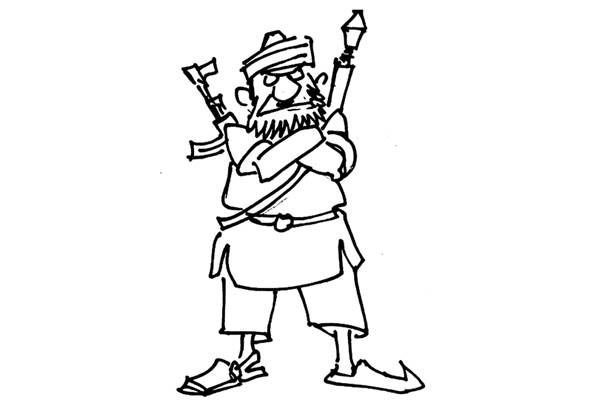
Weaving reality
Sir,
Being termed a ‘game changer’ not only for Pakistan but the entire region, the CPEC is in the process of speedy implementation, despite all the hue and cry being raised by vested interests. The $45 billion Chinese investment coming into this gargantuan China-Pakistan venture has no parallel in the history of China-Pakistan mutual cooperation. A huge investment of this magnitude has, in fact, never ever been made before in Pakistan by any affluent country of the world. In view of this fact, the CPEC will indeed be a dream come true, if successfully executed.
Despite knowing the importance of this gigantic project and the mammoth contribution it, once completed, would make towards the economic growth of not only Pakistan but also that of other countries of the region, detractors of the project, from within and outside the country, are doing whatever they can to sabotage it. Vested groups from within the country are creating hurdles to halt the progress of the project. Pakistan’s ever-belligerent neighbor India too, for obvious reasons, does not want this project to see the light of the day. As usual, India seems to be deeply engrossed in finding ways and means to malign the project by raising undue hue and cry.
Yet another factor that seriously threats the CPEC is terrorism. The security of the Chinese engaged in executing the project in different parts of the country is also a cause for major concern.
One only hopes and prays that detractors will rise above politics, for once, and sacrifice their personal and party interests in the larger national interest.
M Fazal Elahi,
Islamabad.
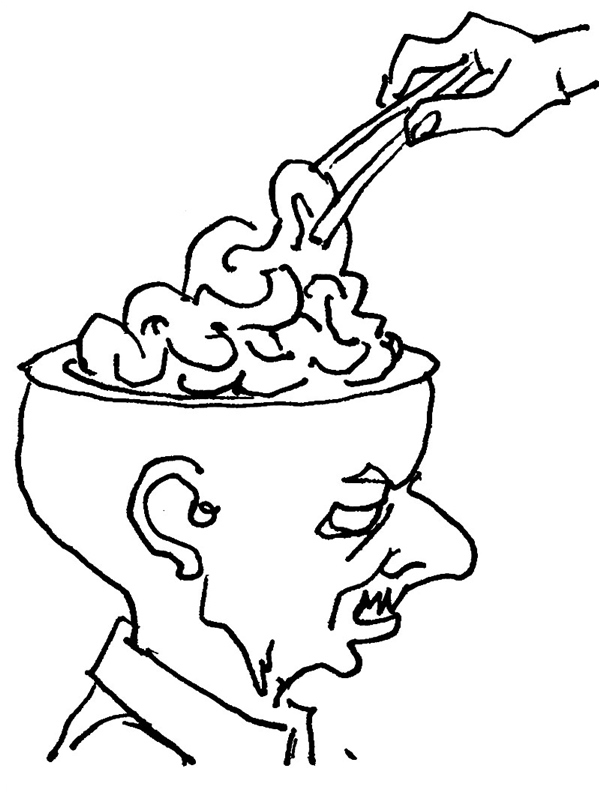
Incongruous social attitudes
Sir,
The independence to voice one’s contentions has always come with a heavy price. This norm is what essentially defined the past and continues to persist even today. During the Middle Ages, individuals who dared to voice their grievances against the feudal system wreaking havoc in their lives, or the individuals who consciously chose to speak against the defined norms and constrictions of the society, had to bear dire repercussions for their infidelity. As a price for their rational and aggressive disposition, they were called madmen, dismissed from the realms of sanity. They were to serve as weighty precedents for the rest of the populace robbed off their very right to speak up on notions that they were averse to.
In terms of societal attitudes and responses, not much seems to have changed during the hundreds of years that bridge the Middle Ages and the postmodern age. An exegesis of the Pakistani society reveals that it indeed seems to be following the same operating procedures, blindly adhered to in the Middle Ages. If in the Middle Ages, opinionated individuals were tagged as “madmen”, in the Pakistani postmodern age, the same psyche tends to permeate, and we end up tagging such individuals as “western agents”, calling into question not only their patriotism but regressing to the extent of judging the credibility of their character.
This is what is pertinently manifested by the scathing criticism meted out by some quarters to Sharmeen Obaid Chinoy’s recent success at the Oscars, where her short film themed on honor killings, “A Girl in the River”, won the award for the category Best Documentary – Short Subject. What should have indeed qualified as a proud celebratory moment for Pakistan was sadly contoured with shades of apprehensions and disapproval since it ensued a strong battle of words between the supporters and scathing critics of Sharmeen. It was sad to see how many called the director a pawn in the hands of the West, and contended that by projecting a rather grim and harrowing image of Pakistan, the director has gone to the extent of capitalising it and ended up winning an Oscar for it.
Even for a miniscule amount of time, if one stands by what these critics contend, still the question arises if directors such as Sharmeen would not choose to document this aspect of Pakistani society, the deep set social ills that essentially mar the status quo, who will do so? With the excessive romance over dosage and dramatisation in the commercial films being currently produced in Pakistan, could anyone expect a mind to be moved by what afflicts the rural women today? Can we really expect the conundrums of such women to be heard, women for whom existence lies in subservience to constricted social orders.
Human nature barely changes without conscious effort. Where it has the potency to evolve, it has an equal and in fact an opposing tendency to devolve and to regress. Balancing these two extremes is punctuated by a stasis like dynamics, where neither progression nor regression takes place. Instead, things continue to be defined by their clichéd original and monotonous mode of existence. They essentially tend to be as they are, with slight modifications to suit the demands of the passing age. It is the dynamics of such stasis that define Pakistan at the moment, where it seems to have rarely evolved or transited from its initial position. Today, it is the Pakistani nation that needs to journey from that stasis to the evolving front, something that can be ensured by managing gender discordance and discrimination. Instead of clinging onto the age-old hollow conventions of honor, that wrongfully legitimise killing, a societal overhaul needs to be ushered in. Such mindset needs to be generated which frees the rural women form the shackled positions of subalterns they are coerced to assume, a positive mindset that recognizes their worth and indispensability and a infuses a realisation to abstain from subjecting women to ruthless modes of violence as a vent to male hegemony, since this is not what Muslims do, nor is it what humans do.
Marria Qibtia,
Sikandar Nagra.
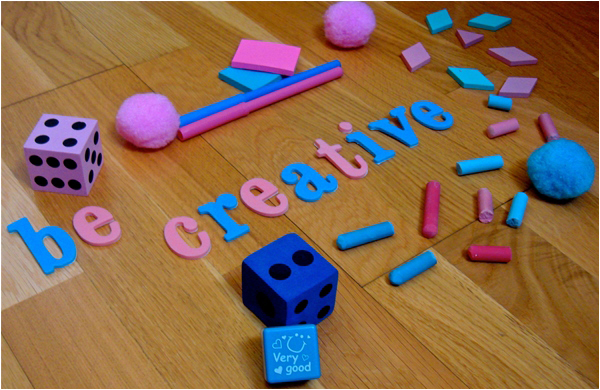
Need for creativity
Sir,
Creativity means the ability to make something new or think of new ideas. Our children’s future success and the country’s depends on creative education. But creative students are very few due to some major reasons. Firstly, the teacher cannot give an opportunity to students to ask questions. They are very strict, and students are only able to listen. Secondly, students only want to get good marks in examinations or get first positions in the whole class. For this purpose, some students study before the starting of examinations and only prepare teacher’s notes. Thirdly, most students waste their time on Facebook, films and other irrelevant things. As a student, it is necessary for teachers to give opportunities to students to ask questions and to allow their skills, knowledge and capabilities. For students, it is necessary to ask questions and study other things rather then their course. It include reading of newspapers and magazines.
Razaullah,
Peshawar.
Nuclear race
Sir,
India has been a frontline vocalist against Pakistan’s nuclear assets, be it any news either of security of nuclear weapons or proliferation, somehow India gets involved in the campaign. Talking particularly about tactical nuclear weapons, India is trying its level best to influence opinions by promoting a perception that thousands of Pakistanis might get killed if Pakistan ever used TNS. The taboo that Americans were successful in creating may be broken if India kept adopting the aggressive polices along with the increase in its nuclear arsenals. If we compare nuclear accidents that happened in past decades then one comes to know that it’s only India that has the most unsafe nuclear weapons among all nuclear states of the world. The 28 separatist movements that are getting more and more intense with the passage of time are the biggest threat to India’s nuclear sites, which India has in those states where separatists have more control then the Indian government.
International media forums have been chanting against Dr Khan and the alleged network for the proliferation of nuclear arsenals, but they always forget that two Indian scientists were put on a ban list by the US after they were found to be prime culprits in nuclear proliferation to Iran and North Korea. Pakistan has been vulnerable for such kind of allegations because of internal issues, which it has been facing from terrorist organisations and also from proxies planted by its enemies. American analyst Bruce Reidal has been very active in telling the world about the vulnerabilities of Pakistan’s nuclear weapons, which may go in the hands of violent non-state actors, but the international nonprofit organisations that release reports about the safety of nuclear sites have ranked India 23rd out of 24 states, and Pakistan’s position is way better than India, North Korea and Iran.
Although Pakistan is not a signatory of NPT, it still doesn’t believe in nuclear proliferation, It has a strong command and control system, which makes its nuclear arsenals safe and secure. Pakistan may not be politically stable but it has never compromised on the safety and security of its nuclear sites. India wants to gain hegemony in the region, which is why it is making nuclear deals and signing different agreements with different states to increase its nuclear arsenal.
Qasim Mehmood Qureshi,
Islamabad.
Rolling up
Sir,
In Western countries, where cigarettes cost far more, smokers often prefer to buy their rolling paper and tobacco separately, and then make their own cigarettes to save money. The sale of Rizla rolling paper abroad is somewhat justifiable, not diminishing the fact that smoking tobacco remains as harmful as ever.
In Pakistan, we now have millions of small shops selling cigarettes and thousands of lavish branded tobacco outlets, the latter more often seen in metropolitan cities. We already know that cigarettes are reasonably priced in this country, regardless of which Rizlas account for significant sales. So why is rolling paper still being sold in large volumes when the price of an ordinary cigarette is quite reasonable?
Many young Pakistanis purchase Rizlas not just to fill with tobacco, but also marijuana and other drugs. You can conveniently enter any tobacco outlet and easily buy Rizlas, with the additional option of different brands and flavours. Not only this, but you can also legally buy paper rolling machines and other accessories needed to roll a joint. This is alarming. The government needs to take serious notice of the sale of Rizlas. Such products should not be so easy to purchase for the average consumer. The authorities should take notice of this issue and immediately impose a complete ban on the sale of rolling paper as part of their fight against drug use in the country.
Farooq Azhar Khwaja,
Lahore.
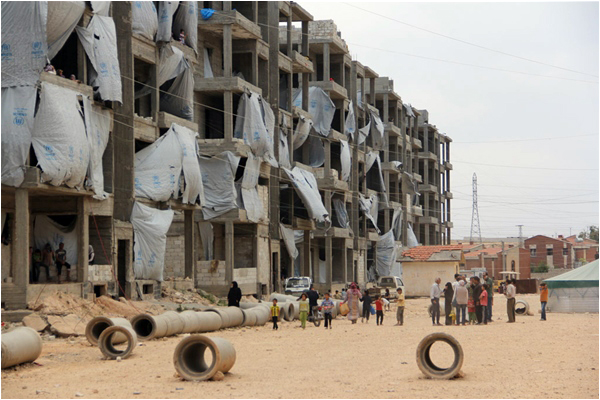
Tragedy unfolding
Sir,
More than four years after it began, the full-blown civil war being fought in Syria has killed over 250,000 people, half of them civilians. The UN estimates that nearly 8 million Syrians have been displaced as a result of the conflict. Taking into account the additional 4 million Syrians who have fled into neighbouring countries, it’s safe to say that more than half the country’s pre-war population of 23 million are victims of a humanitarian disaster, the likes of which we have seldom seen. In addition to inflicting a very high toll on civilians, the Syrian conflict has devastated every foundation on which a country stands, be that its population, civil society, infrastructure, cultural heritage or economy. Prior to the conflict, Syria was a middle-income country with an economy based on agriculture, industry, oil, trade and tourism, and it had decent healthcare and education. Four years on, it’s all changed.
The country’s economy has lost nearly 80% of its productive capacity since the beginning of the civil war. Even if the conflict ceased today, and the country’s GDP grew at an average rate of five percent each year, it will take the Syrian economy an estimated 30 years to regain its pre-war economic strength. The Syrian economy has experienced massive de-industrialisation, dilapidation and degradation as a result of businesses closing down, flight of capital, and general looting and destruction.
While the country was eastern Mediterranean’s leading oil and natural gas producer at one time, Syria has seen its production fall to a fraction of past levels. The country is no longer able to export oil, and as a result, government revenues from the energy sector have fallen significantly. Separately, agricultural activity continues at a reduced level, increasing the reliance on imported items. The continuously depreciating national currency means that the US dollar is highly sought after, with some traders and businesses refusing to accept Syrian pounds. Another alarming figure reveals that 48.8 percent of the workforce is unemployed. Resultantly, more than half of the Syrian population is living in poverty, with some 4.4 million (or more than a fifth of the population) living in abject poverty.
Another victim of the raging conflict is the country’s infrastructure. The World Health Organization estimates that 37 percent of Syrian hospitals have been destroyed, and a further 20 percent severely damaged during the civil war. Civilians are forced to seek help from primitive field hospitals, often run out of homes by local volunteers who have only the most basic medicines and training.
Meanwhile, numerous historical archaeological sites in the country are being systematically targeted and destroyed by the Islamic State. Museums in Syria are also in danger, with there being various incidents of valuable cultural property being looted. A large number of museums have also been damaged as a result of bombing campaigns being conducted by the Syrian army against rebel forces. Syrian cultural property has almost completely vanished, curiously either showing up for sale on the black market and/or being added to private collections. The ongoing uncontrolled violence has led to a broad disintegration of Syrian society, as we knew it. Things have visibly changed and there are qualitative variables that have left deep scars in the conscience of the people. A once vibrant and peace-loving society has now been left full of hatred, with an inherent distrust of other ethnic groups.
Time will tell who wins or loses as a result of this conflict, but one thing is certain, Syria as a country has already lost the struggle for its survival. Who’s to say whether future generations will get to see the Syria of old, or whether they’ll know about Syria through stories alone.
Manish Rai,
Tehran, Iran.
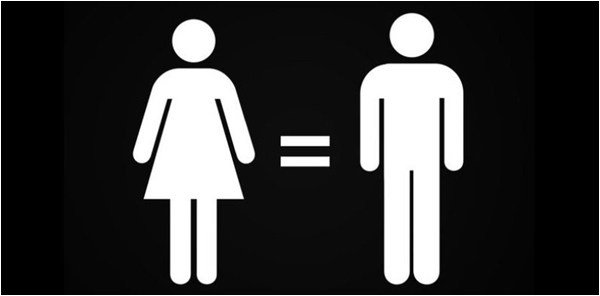
Gender discrimination
Sir,
Discrimination against women is common all over the world, but it is most common in Pakistan and India, where men discriminate against women. Women in these countries are not getting their fundamental rights. The first right of every individual is the right to an education, but women are not being given this right. And in Pakistan, there are plenty of aged and illiterate peasants who make their daughters work instead of going to school.
I request the government of Pakistan and other leaders to please give this issue their attention and bridge this gap among the genders.
Munaj Gul,
Turbat.
NOT OUR VIEWS
Reference to a letter published in The Friday Times on December 25th, 2015 titled “Once a gentleman’s club”, we assure the Club and its office holders that we do not subscribe to the views in the letter which are merely the opinions of a reader of TFT. — Editor of Letters Page.

